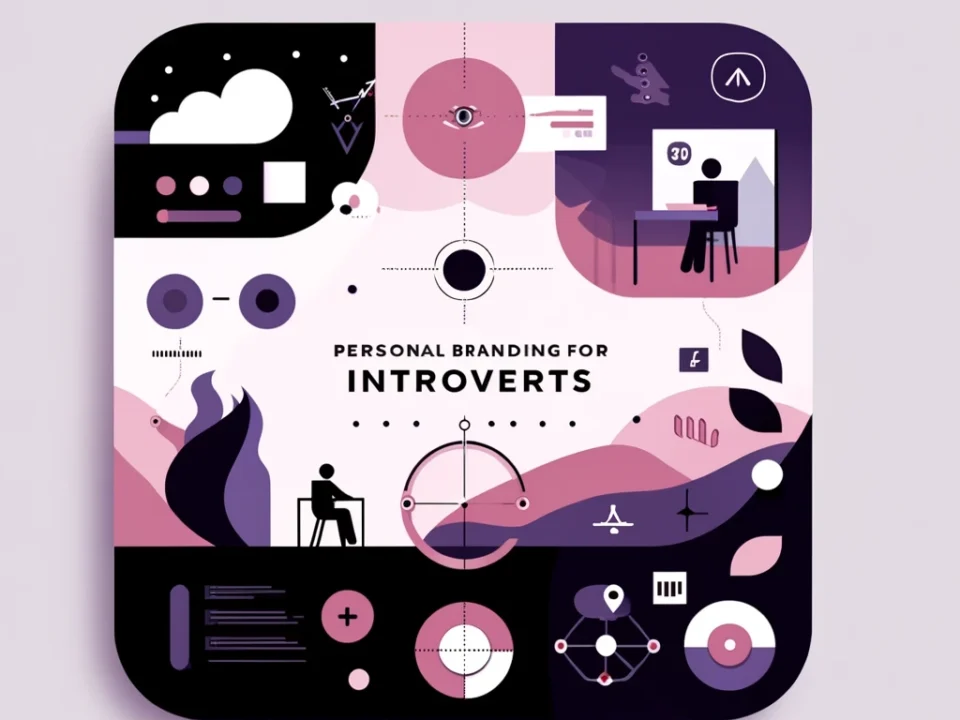Personal branding has become a powerful tool for career advancement in the ever-changing professional environment of today. It is about strategically shaping how you are perceived by colleagues, superiors, and the industry at large, rather than simply having an online presence or a well-designed resume. In this blog, let us have a look at the importance of personal branding, why is personal branding important for your career, what makes a great personal brand, and how to use it to your advantage to move up the corporate ladder.
I. Understanding the Power of Personal Branding
1. Defining Personal Branding:
Personal branding is a deliberate effort to shape and manage how others perceive you. It is all about creating a story that highlights your distinct strengths, skills, and values. In a professional setting, personal branding allows you to stand out from the crowd and showcase your professional identity.
2. The Corporate World Today:
Personal branding has become a career necessity in an era where networking and visibility are as important as skill sets. The traditional career ladder has evolved into a lattice, with lateral moves and diverse experiences valued as much as a vertical climb to the top. Your personal brand is your ticket to standing out in this complex and competitive environment.
II. The Components of Strong Personal Branding
1. Authenticity as the Foundation:
The foundation of a strong personal brand is authenticity. It entails aligning your professional image with your true self. Authenticity fosters trust and credibility, both of which are essential for career advancement. Not only should your personal brand reflect what you can do, but also who you are.
2. Defining Your Unique Value Proposition (UVP):
Your Unique Value Proposition is the essence of what makes you different from other people. Employers value you because of a unique combination of your skills, experiences, and personal characteristics. Developing a compelling UVP is critical for strategically positioning yourself in the job market and within your current organization.
3. Consistent online and offline activity:
Your personal brand exists both on and off the internet. Consistency is essential in developing a strong personal brand. Every touchpoint, from your LinkedIn profile to your interactions at work, should contribute to a consistent and positive narrative.
III. Moving Up the Corporate Ladder with Personal branding
If you want to climb the corporate ladder, you need to see the steps beneath and understand the bigger picture. Of course, there are exceptional situations, such as employees moving to different departments or your division experiencing success, which typically require timing and a little bit of luck. An understudy may take over for managers, directors, vice presidents, or even the CEO if they quit the role. Additionally, if your division generates a lot of revenue in one year, the CEO may wish to put in more funds and manpower. In this case, you will have direct reporting, which will help you advance into management.
You are mistaken if you believe that in just a year you might hold a managerial position. One year is not going to be enough for you to fully comprehend your field. Moreover, you won’t have gained the respect of a fresh hire to manage that role. Programs for developing leadership skills enable you to move up the pyramid more quickly and successfully. If not, you will have to start at the bottom and work your way up, learning something important every step of the way. Along with this, one important thing that will level up your pyramid game is establishing a powerful personal brand.
Not everyone aspires to become a manager. More duties, stress, and time spent apart from friends and family are all part of becoming a manager. This blog is mostly intended for people who want to achieve at the highest level by giving up everything and fostering upward mobility. You have to invest the time, energy, and, most importantly, awareness that there are others who share your objectives if you wish to accomplish this. You will eventually climb the corporate ladder if you remain committed and develop your personal brand.
IV. Utilizing personal branding to advance one’s career.
1. Enhancing Your Professional Image:
The visual representation of your professional image is your personal brand. This includes your physical appearance, communication style, and online visibility. Develop a professional image that is in alignment with your industry and the level of success you wish to achieve.
2. Networking and Relationship Development:
Networking is a powerful tool for career advancement, and your personal brand follows you around in networking situations. A well-crafted personal brand makes it easier to connect with industry professionals, fostering relationships that can lead to new opportunities.
3. Emphasizing Thought Leadership:
Establishing yourself as a thought leader in your field adds significantly to your personal brand. Positioning yourself as an authority, whether through writing articles, speaking at conferences, or actively participating in industry discussions, boosts your credibility and visibility.
4. Overcoming Professional Obstacles:
During difficult times, a strong personal brand acts as a shield. It assists you in managing your professional reputation, particularly in the face of setbacks. A positive and resilient personal brand can lessen the impact of challenges and demonstrate your ability to overcome adversity.
V. Case Studies: Realizing Personal Branding Success Stories
1. Elon Musk:
Elon Musk, the visionary entrepreneur, has created a personal brand that is synonymous with boldness and innovation. His strong online presence, combined with his unapologetic approach to pushing boundaries, has not only elevated his personal brand but has also benefited the companies he leads, including Tesla and SpaceX.
Risk-Taking and Resilience: Musk’s personal brand includes a willingness to take massive risks, endure failures, and turn them into wins, showcasing resilience and determination.
Work Ethic: Musk’s legendary work ethic, often working 80+ hours per week, contributes to his personal brand as a dedicated and hardworking visionary.
Authenticity on Social Media: Musk’s authentic and unfiltered presence on social media, particularly Twitter, adds a human touch to his brand, showcasing transparency and authenticity.
Association with Innovation and Sustainability: Musk’s personal brand is synonymous with innovation, sustainability, and the future of transportation, contributing to the success of Tesla and other ventures.
Charismatic Leadership: Musk’s charismatic leadership style has played a crucial role in attracting followers and creating a positive image for himself and his companies.
2. Sheryl Sandberg:
Sheryl Sandberg’s personal branding success story is marked by her influential role as the Chief Operating Officer (COO) of Facebook and her advocacy for women’s empowerment. While Sandberg has expressed reservations about the concept of personal branding, her achievements and impact speak for themselves. She is renowned for her pivotal role in the growth of Facebook, contributing to its advertising strategies and business development. Sandberg’s success story is highlighted by her best-selling book “Lean In,” where she addresses gender inequality in the workplace and encourages women to pursue leadership roles. Her authentic and impactful voice has made her a prominent figure in the tech industry and a symbol of women’s leadership.
VI. Establishing and Upholding Personal Branding
1. Developing Your Elevator Pitch:
In an elevator pitch, you should communicate your personal brand concisely. This concise and compelling summary of who you are and what you bring to the table is essential for networking events, interviews, and casual professional interactions.
2. Adaptability and continuous learning:
Your personal brand should evolve in tandem with the professional landscape. Continuous learning and adaptability are essential for professional advancement. Demonstrate your commitment to growth by obtaining certifications, learning new skills, and being open to new experiences.
3. Seeking Feedback and Iterating:
Your personal brand is an ever-changing narrative. Seek feedback from mentors, colleagues, and peers on a regular basis. Make use of constructive feedback to iterate and refine your personal brand, ensuring that it remains relevant and aligned with your career objectives.
VII. The Future of Personal Branding in the Corporate World
1. Making the Most of the Gig Economy:
As the gig economy grows in popularity, personal branding becomes even more important. To attract opportunities in a landscape characterized by short-term projects and dynamic collaborations, freelancers, entrepreneurs, and professionals with diverse skill sets must develop a strong personal brand.
2. Dealing with the Reality of Remote Work:
Because of the rise of remote work, the dynamics of professional interactions have shifted. Personal branding is now being applied to virtual spaces, such as Zoom meetings and LinkedIn profiles. Effectively leveraging online platforms for personal branding has emerged as a critical skill for professionals navigating the remote work landscape.
VIII. Conclusion: Crafting Your Personal Branding Success Story
Personal branding is no longer a luxury in today’s corporate world; it is a strategic necessity. Your personal brand is a powerful asset that can propel you up the corporate ladder, open doors to exciting opportunities, and establish you as a leader in your field. Understanding and effectively leveraging the components of a strong personal brand allows you to shape your own narrative and chart a course for sustained career advancement in a rapidly changing professional world. Accept the journey of personal branding and allow your professional story to be a testament to your unique value and aspirations.





